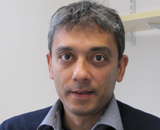 Last Saturday saw more than 250 people attend a Medact conference on the interfaces between health, politics, ecology, economics, and violence. There were about 30 speakers including well known figures from the world of health (Richard Horton, Iain Chalmers, Allyson Pollock, Andy Haines, John Lister, and Jacky Davis). But there were also speakers from other worlds such as Jim Welsh from Amnesty International, Charlie Kronick from Greenpeace, John Hilary from War on Want, Maya Foa from Reprieve, and Peter Burt from the Nuclear Information Service.
Last Saturday saw more than 250 people attend a Medact conference on the interfaces between health, politics, ecology, economics, and violence. There were about 30 speakers including well known figures from the world of health (Richard Horton, Iain Chalmers, Allyson Pollock, Andy Haines, John Lister, and Jacky Davis). But there were also speakers from other worlds such as Jim Welsh from Amnesty International, Charlie Kronick from Greenpeace, John Hilary from War on Want, Maya Foa from Reprieve, and Peter Burt from the Nuclear Information Service.
Thus we had students, doctors, nurses, and other health professionals talking with and learning from lawyers, economists, human rights experts, and political scientists about the wider determinants of global health. The discussion was serious, but the space buzzed with energy.
The conference was designed to draw attention to a set of three interconnected crises that are set to spiral out of control and reverse improvements in health that have been made worldwide over the past few decades. These are: 1) war, violence, and militarisation; 2) ecological degradation and climate collapse; and 3) enduring poverty and widening inequality. Each of these crises is a problem in its own right—but they also interact in vicious and potentially uncontrollable ways.
Climate change and ecological degradation, for example, are already a cause of immiseration. And severe weather events such as the one that has just devastated the Philippines will grow in frequency as the effects of global warming take grip on the planet. The disintegration of ecosystems and heightened water and food insecurity will aggravate poverty and inequality, and trigger conflict and violence. Increasingly, climate change is being identified as a security issue that requires a militarised response. And with no apparent end to the further accumulation of wealth and power by a small and increasingly “supranational” elite, the prospects for sound, just, and democratic politics to address these challenges remain small.
A counsel of despair? One might be forgiven for thinking so from reading and listening to our mainstream media and politicians; much harder for an ordinary Bangladeshi. Billions of people are already living in or on the margins of poverty; millions already suffer catastrophic losses through war and ecological collapse. But more importantly, the scientific facts speak for themselves—and would do so more loudly if not for the fog of misinformation, propaganda, and spin that is designed to obfuscate and mislead.
This comes to the second purpose of the conference—which was to make explicit the social and political failings that underlie the crises described above. I spoke of three mutually reinforcing social pathologies that we must confront: inequality, the circumvention of democracy, and neoliberalism. Extreme inequality is a “structural pathology” that underpins a raft of policies and laws across a range of sectors that harm both the planet and the majority of global citizens.
Inequality is in and of itself a cause of social and ecological failings, and not just their outcome. The circumvention of democracy at the national and global levels is a “political pathology” that runs alongside inequality, reinforcing injustice, and perpetuating failures of governance.
Finally, neoliberalism is an “ideological pathology”—one that underlies both inequality and democratic failures, whilst simultaneously inhibiting our ability to imagine and believe that another world is possible. To paraphrase Mark Fisher, it seems as though it is easier to imagine the end of the world than it is to imagine the end of neoliberal capitalism.
Is all this radical, doom-saying, and hyperbolic rhetoric? I hope it is. But I’ve arrived at this conclusion through a process of seeing and learning. I started life as a clinician. I then worked at the level of national health systems. This was followed by work in the field of global health and international development assistance. But now I see the need to expand further into the realms of ecology, economics, politics, and peace-building.
And that is why Medact is important. It is a charity of and for health professionals to tackle the underlying causes of ill health, violence, conflict, and ecological collapse. Its remit is to educate, inform, analyse, and lobby—based on both scientific evidence and a set of social justice and human rights principles. The conference marked the relaunch of Medact, and a process of revitalising and strengthening it. Contact me or Medact should you wish to be part of this journey.
Declaration of Interest: I am chair of the Board of Trustees of Medact. I have no other competing interests to declare.
David McCoy is a public health physician. He spent his first 15 years working in clinical medicine and health systems development, mostly in South Africa. Since then he has been based in London, working on various aspects of “global health” as an academic and NHS physician. He is a senior clinical lecturer at Queen Mary University London, and chairs the Board of Trustees of Medact. He was joint managing editor of the first two alternative world health reports (Global Health Watch) and is a member of the steering committee of the People’s Health Movement.